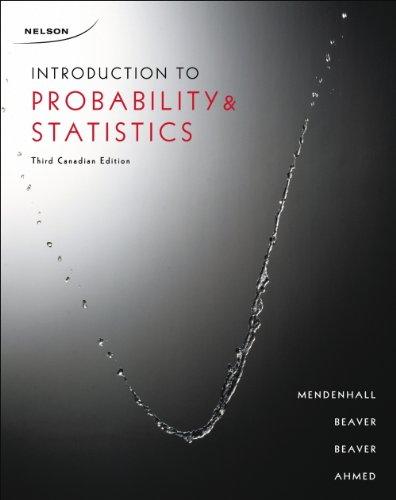1. Test whether each study, analyzed separately, supports the hypothesis that the gin- seng extract reduces the...
Question:
1. Test whether each study, analyzed separately, supports the hypothesis that the gin- seng extract reduces the likelihood of laboratory-confirmed influenza.
Edmonton company CV Technologies Inc. has conducted clinical trials, with results published in the Journal of the American Geriatrics Society showing that their propri- etary ginseng extract can prevent colds. It obtained results that indicated a reduction in laboratory-confirmed respiratory illness (colds and flu) of 89%, and their results were statistically significant.29 However, on February 25, 2006, the Vancouver Sun published an article in which two professors from the University of British Columbia criticized the claims, accusing the article's authors of "data-mining," and saying that the trials were not definitive evidence that the product had any effect. The study consisted of two randomized clinical trials, one conducted in 2000, the second in 2001, with nursing-home patients as subjects. In each trial, the sub- jects were randomly assigned to take either 200 mg of the ginseng extract or a placebo twice daily. The trials were conducted as double-blind studies, in which neither the participants nor the investigators responsible for following the par- ticipants knew to which group a participant belonged. The results are given in the following table:

Step by Step Answer:

Introduction To Probability And Statistics
ISBN: 9780176509804
3rd Edition
Authors: William Mendenhall






